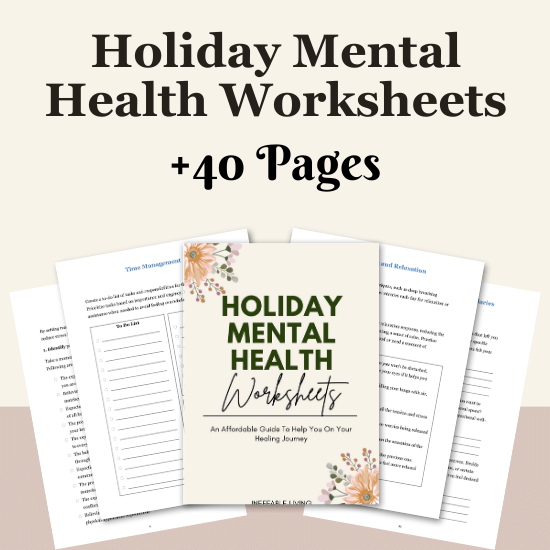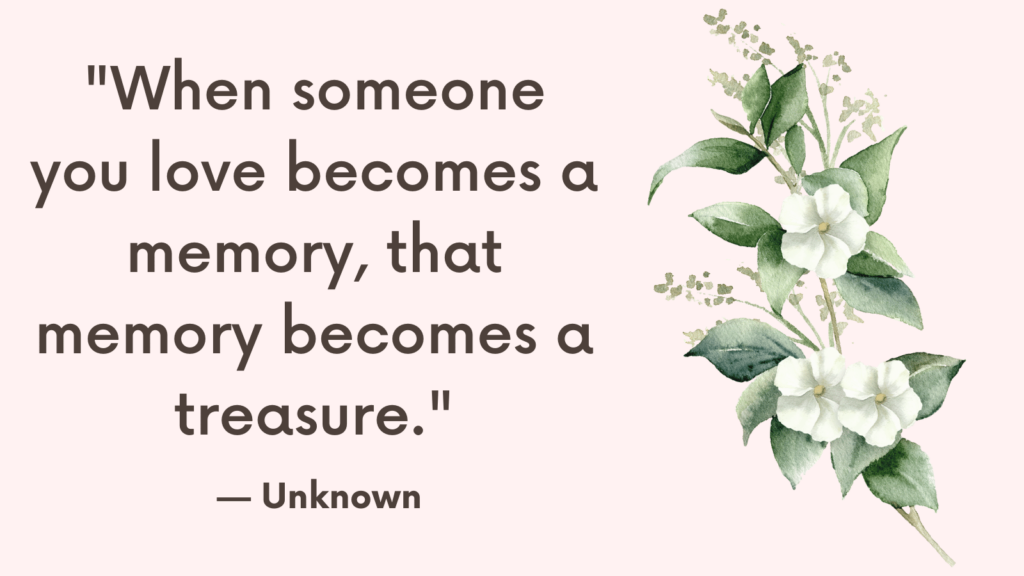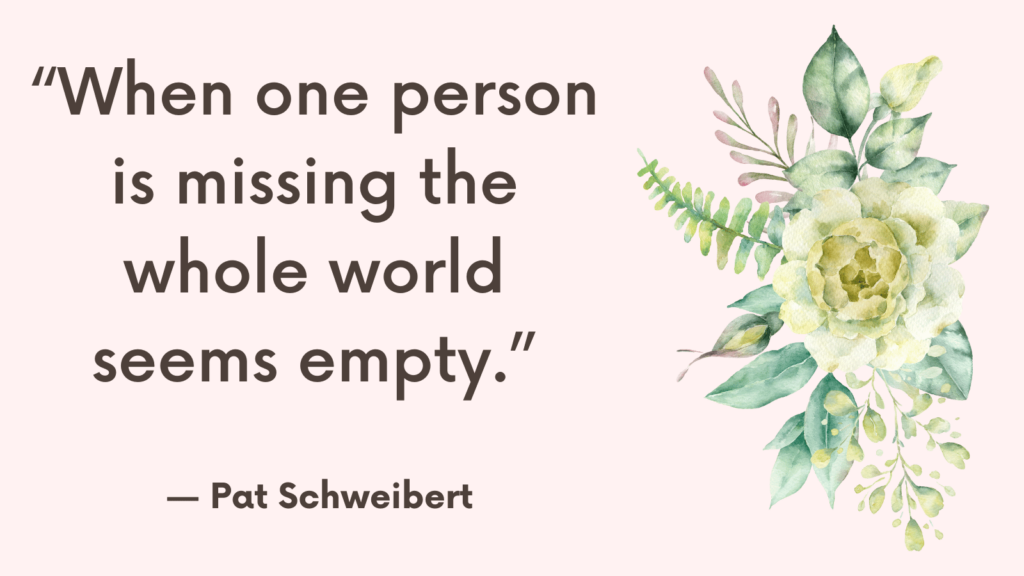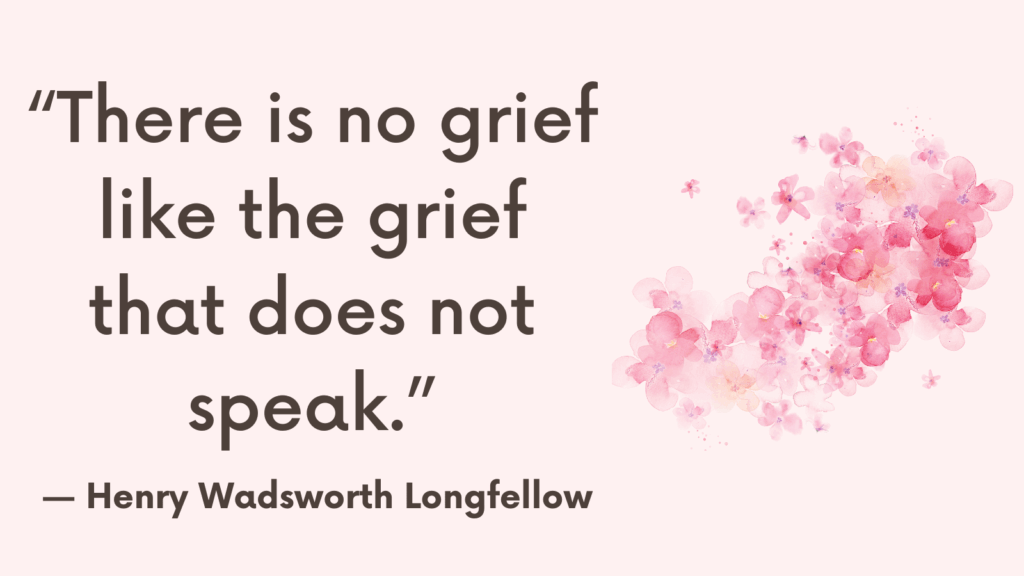In this post, you’re going to learn how to survive Christmas without a loved one.
How to Survive Christmas Without A Loved One?
Surviving Christmas without a loved one can be a profoundly difficult experience, marked by a mix of grief, nostalgia, and the pressure to partake in festive joy.
1. Acknowledging Your Grief
The first step in navigating Christmas without a loved one is to acknowledge your grief.
It’s okay to feel sad, angry, or numb.
Accepting these emotions as valid parts of your experience can help you move through them more effectively.
Give yourself permission to experience all your emotions without judgment.
2. Creating New Traditions
While the absence of a loved one can make traditional celebrations feel empty or painful, creating new traditions can offer a way to honor their memory while adapting to their absence.
Light a candle for your loved one, share favorite stories about them, or hang a special ornament in their honor.
Sometimes, a change of scenery can help ease the pain. Consider celebrating in a new location that doesn’t have as many memories attached.
Related: How Do Widows Cope With Loneliness? Top 10 Ways
3. Taking Care of Yourself
The holiday season can be overwhelming, making it essential to prioritize self-care.
It’s okay to say no to events or traditions that feel too painful without your loved one.
Treat yourself with the same kindness you would offer a friend in your situation.
4. Seeking Support
You don’t have to face your grief alone. Seeking support can provide comfort and understanding during this challenging time.
Spend time with friends and family who understand your loss and can offer support.
5. Honoring Their Memory
Finding ways to honor your loved one’s memory can be a healing part of your Christmas celebration.
Encourage friends and family to share their own memories and stories.
Consider making a donation in their name to a charity or cause they cared about.
Related: Best 20 Gifts For Widows to Show Support
6. Allowing Joy
It might feel wrong to experience joy without your loved one, but allowing yourself moments of happiness is not a betrayal of their memory.
Appreciate moments of beauty or laughter when they come.
Understand that it’s okay to feel happy, even in grief.
7. Communicating Your Needs
People around you may want to help but might not know how. Communicating your needs can guide them in offering the support you want.
Let people know how you’re feeling and what you need from them, whether it’s space or company.
Don’t be afraid to ask for specific help, whether it’s with holiday preparations or just needing someone to listen.
Related: Best +30 Grief Activities For Adults (+FREE Worksheets PDF)
8. Limiting Stress
The holidays can be inherently stressful, and facing them without a loved one can intensify this stress.
Try to anticipate difficult moments or triggers and plan how you’ll handle them.
It’s okay to scale back holiday activities. Focus on what feels meaningful to you.
9. Embracing Change
Ultimately, surviving Christmas without a loved one involves embracing change. Your holiday season will not be the same as it was, but it can still hold moments of beauty and significance.
Allow yourself to find new ways to celebrate that feel right for you now.
Through grief and loss, there is also the potential for personal growth and deepened relationships with others.
Related: Grief Comes In Waves: Top 12 Lessons From Grief No One Talks About

Why Grief Feels Heavier During the Holiday Season
1. The Contrast Between Outer Joy and Inner Pain
Everywhere you look — decorations, music, social media, commercials — the world is celebrating. If you’re grieving, this contrast between how you feel and how you’re supposed to feel can be jarring. It may amplify your sadness or create pressure to “put on a happy face,” even when your heart is heavy. This emotional dissonance often deepens the sense of isolation.
2. Traditions Trigger Memories
Holidays are filled with rituals — cooking favorite meals, decorating together, exchanging gifts — all of which can stir vivid memories of the person you lost. Even joyful traditions can become painful reminders of their absence. These moments don’t just recall the loss; they bring back the connection, making the void feel fresh and raw.
3. There’s Pressure to “Move On”
Some people around you may expect you to have “healed” or “moved on” by now — especially if it’s been a year or more. But grief doesn’t operate on a calendar. The holidays tend to resurface feelings of love and longing, no matter how much time has passed. Facing these reactions without judgment can be one of the most healing steps you take.
4. You’re Navigating New Roles or Empty Spaces
You may now be the one responsible for hosting, cooking, or holding the family together. Or you may be attending events where a chair is empty, a voice is missing, or a ritual feels incomplete. These role changes and visible absences make the loss feel more real, more present, and more painful.
Related: Resilient Grieving: Best 17 Ways To Manage Grief In The Workplace (+FREE Grief Worksheets)
Conclusion
Surviving Christmas without a loved one is a profound challenge, requiring a balance of honoring your grief and finding ways to move forward.
Remember, there is no right way to grieve, and how you choose to cope with your loss during the holidays is a deeply personal decision.



